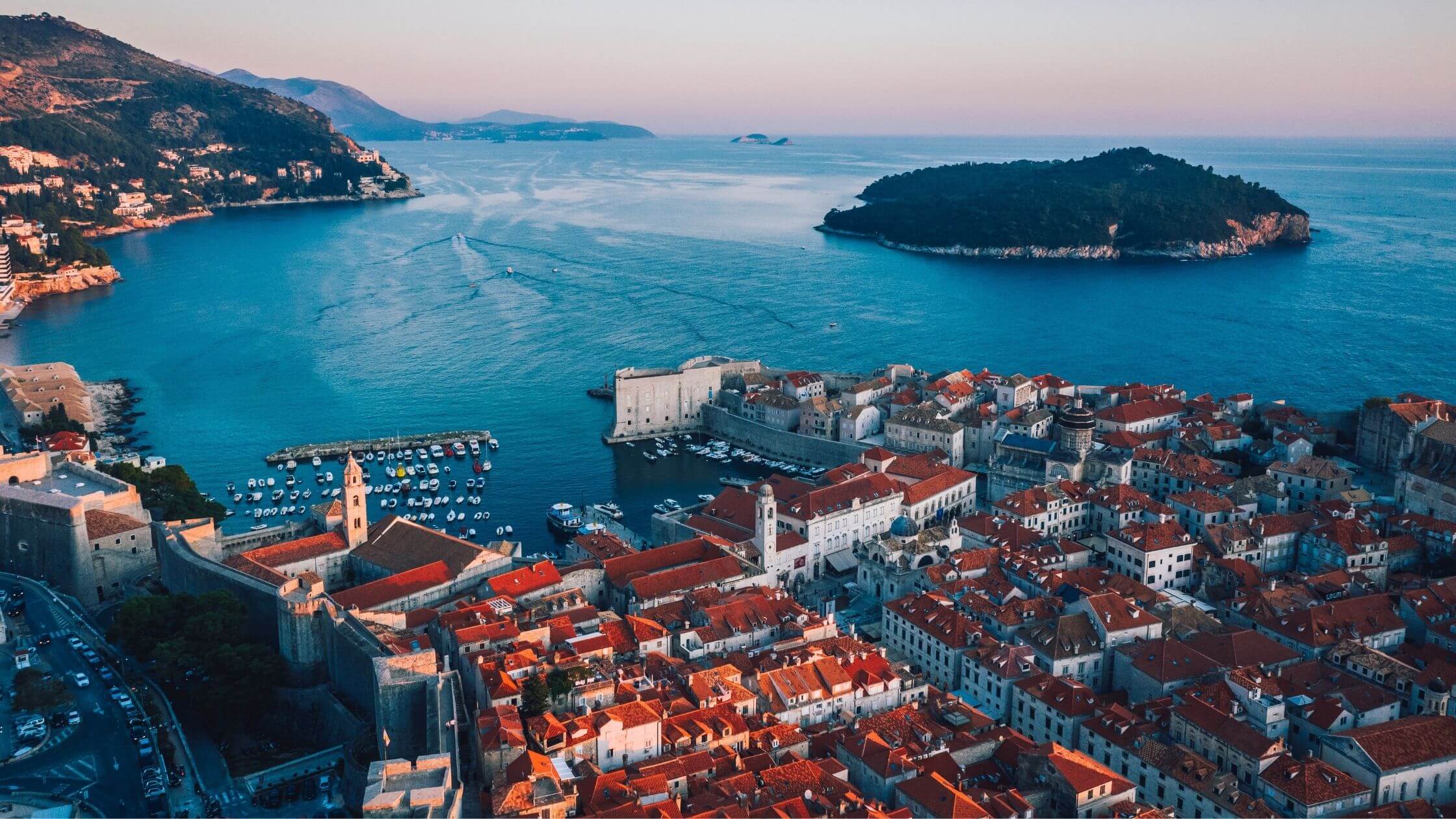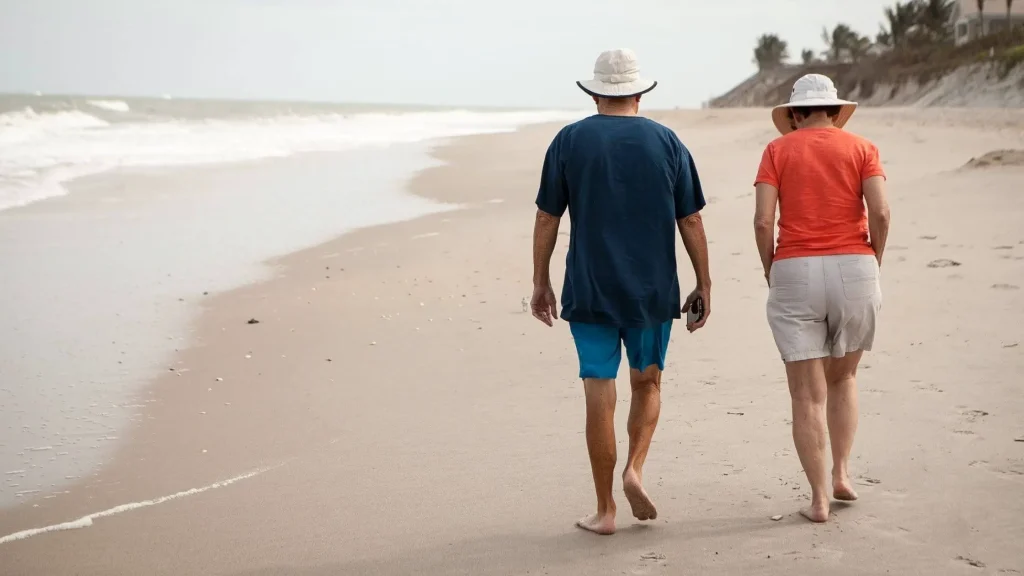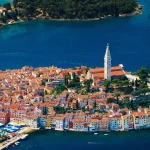In this article, I briefly walk you through the different types of long-term permits the Croatian government currently offers and provide deeper insights into those that are the most applicable to retirees.
All information presented here is from the Ministry of the Interior (MUP) which regulates the stay of foreigners in Croatia.
Can I get permanent status to stay long-term?
The short answer is, yes, but for anything longer than 1-year, it becomes increasingly complicated.
For now, just know that although there are 2 types of Permanent Residency Permits in Croatia that allow extended stays beyond 1-year, it is nearly impossible for a 3rd country national to obtain either on arrival if you have no Croatian roots or family.
In order to stay for more than 90 days in Croatia, you must apply for a Temporary Residence Permit.

Time to get all that paperwork in order. Image: Anete Lusina/Pexels
Types of Temporary Residency Permits
According to the MUP, there are different ways for 3rd country nationals to obtain a Temporary Residency Permit.
- Work for a Croatian registered company
- Study at a Croatian institute
- Conduct scientific research
- Humanitarian grounds
- Be a digital nomad*
- Start a business
- Be a non-remunerated volunteer*
- Other purposes (purchasing real estate)*
- Other purposes (renting real estate)*
As of writing, these (*) options do not count towards gaining permanent residency or citizenship.
For those looking to retire, let’s briefly consider options 5-9 as the most appropriate.
The Digital Nomad Visa (point 5)
Introduced in January 2021, the Digital Nomad Visa provides a relatively straightforward way for 3rd country nationals to stay in Croatia for an extended period.
If you’re retired but do some freelancing from time to time, this may just work for you.
Criteria for a Digital Nomad Visa include:
- Proof that you are a digital nomad by providing documents such as company registration, freelance contracts, invoices, and payment from clients (documents should be translated into Croatian and notarized)
- A criminal background check from your home country
- Valid health insurance for 1-year (e.g. Cigna, Safetywings, Croatia Osiguranje)
- Proof of sufficient monthly funds which are 2.5 times the average net salary of the previous year as published by the Croatian Bureau of Statistics (DZS). For each additional family member, the amount is increased by 10% of the average net salary
- When this expires, you have to leave the country for 90 days before reapplying
As of October 2021, the average gross earning per employee as published by the DZS is HRK 9,597 (€1,275), while the average net earning per employee is HRK 7,140 (€948).
This means for one retiree; you need to show that you have a monthly income of HRK 17,860 (€2,367). For each additional member, it is HRK 714 (€95) more per month.
If your monthly income is irregular, you can also prove sufficient funds by showing you have a full 12 months of income in your bank account, HRK 214,320 (€28,424) for a solo retiree and HRK 222,786 (€29,545) if you are coming with a partner.
Starting a business (point 6)
Alternatively, for some retirees, starting a local business may be an ideal way to make some passive income while enjoying all that Croatia has to offer.
3rd country retirees can gain Temporary Residency by starting a business in Croatia, but meeting the required thresholds and the additional bureaucratic requirements can be more than a full-time job in itself.
To qualify, you have to:
- Own at least 51% of a Croatian company, or incorporate one of these business forms – obrt, j.d.o.o, or d.o.o.
- Invest at least HRK 200,000 (€26,500) as starting capital which can be claimed for business expenses
- You must employ yourself, as well as 3 Croatian nationals as full-time permanent staff
- The gross salaries of all 3 of your staff have to be equal to the average gross salary of the previous year
- Your own salary must be at least 1.5 times the average gross salary
For 3 members of staff and yourself, you’d be looking at a minimum monthly human capital cost of approximately HRK 43,186 (€5,738). Not to mention you also have to deal with taxes, health insurance and other miscellaneous paperwork.
Becoming a long-term volunteer (point 7)
Maybe starting a business is not for you, perhaps consider volunteering? According to Croatian law, long-term volunteers between the ages of 18-65 are allowed to stay for 1-year.
The requirements are as follows:
- You have to register your stay and apply for a residence and work permit
- The host organization (“udraga”) has to prove they will cover costs for your stay, including food, accommodation, and other necessary expenses
- You can be given an allowance by the host organization, but you cannot be paid
- You are not allowed to work for any other company in Croatia
- The hosting organization must possess a third-party liability insurance policy
Under certain conditions, this permit can be renewed for a second year if approved by the host organization and relevant authorities.

Real estate in Dubrovnik. Image: Lucian Photography/Pexels
Other purposes: Investing in real estate (point 8)
Unlike other EU countries (e.g. Spain, Portugal, Greece), Croatia does not currently offer a similar investment scheme where investing a certain amount in real estate qualifies you to live indefinitely.
In the case of Croatia,
- There is no set amount of investment required
- You must live in the purchased residential property
- The visa is only valid for 6 months which is extended to 9 months if you include the 3-month short-term tourist visa
- Once your 9 months is up, you are not allowed to renew or extend the permit
- You must wait 6 months and leave Croatia during this time before submitting a new application again
While there is no minimum investment requirement, the criteria of having to leave and resubmit an application make it difficult for retirees to settle permanently.
Other purposes: Renting real estate (point 9)
What if you’re considering the following retirement scenario: renting out your current residence that will help fund your retirement years in Croatia where you’d also rent instead of purchasing real estate?
You most certainly can but know that this route will also only entitle you to a 1-year Temporary Residency permit.
Let’s look at the additional criteria:
- You are not allowed to work for a Croatia registered company
- You have to sign a rental contract with the landlord and prepay a full year of rent (AirBnB, Booking.com does not count)
- The contract has to be notarized before submission to the relevant authorities
- At the end of your 1-year permit, you have to leave Croatia (although through anecdotal evidence, I have heard of this being extended for another year)
- You can only reapply again 6 months after the permit expires
While rent in Croatia is relatively lower than in cities in North America, Australia, or the UK, it also comes with its own complications.
Finding a landlord who is willing to lease you an apartment year-round can be difficult as the tourist season (June – September) brings in the bulk of their income. It is not uncommon for landlords to make a full year’s rent and more, just during tourist season alone.
What would retirement in Croatia look like then?
Until the rules change, it is problematic if you intend to live out a “classic” retirement scenario.
However, now that you know what to expect, if you’re willing to take on a more dynamic approach and make Croatia a secondary home as part of your broader retirement plan, it might just be some of the best year(s) of your life.
(€1 = HRK 7.54)
For more, check out our lifestyle section.









